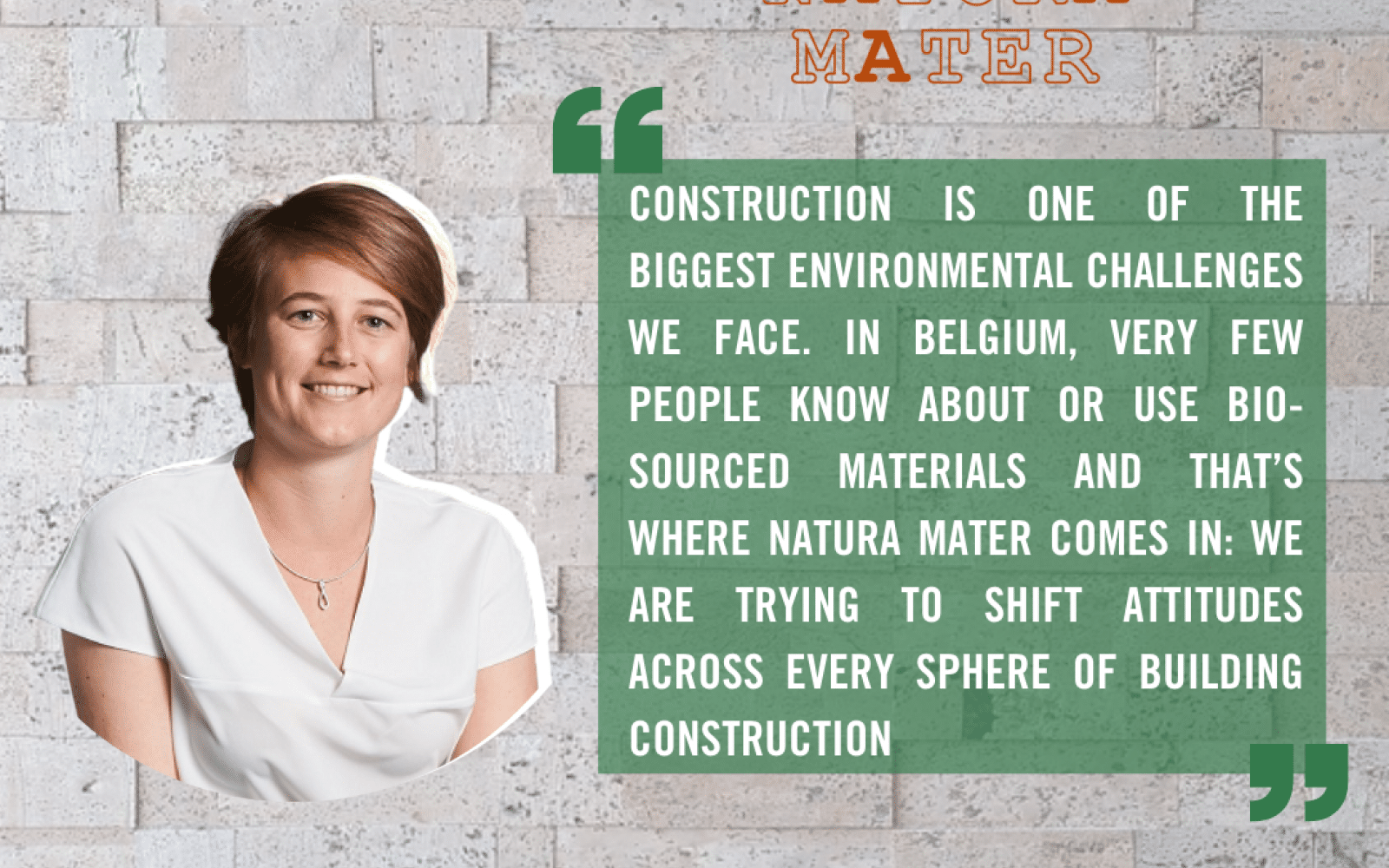What started out as a project born from frustration blossomed into an innovative
startup, connecting real estate developers, architects, and building contractors under the same sustainable vision.
When two of Natura Mater’s co-founders decided to sustainably renovate their dream house, their project was rapidly challenged by the market reality. If as building experts they encountered difficulties in acquiring sustainable materials, how could the average person manage it? From then on, the idea of making sustainable materials more accessible to the entire construction industry value chain began to take shape. Today, Natura Mater comprises five associates, with distinctive profiles and backgrounds, but all sharing the same vision: to facilitate the industry’s transition towards sustainability.
Expert advice and innovative materials
“Construction is one of the biggest environmental challenges we face,” says Camille Mommer, one of the co-founders. “Thirty percent of global waste and 40% of CO2 emissions are linked to the industry. In Belgium, very few people know about or use bio-sourced materials and that’s where Natura Mater comes in: we are trying to shift attitudes across every sphere of building construction.”
Natura Mater’s unique approach revolves around the developer-architect-builder triangle, as Camille explains. “The real estate developer, the architect and the building contractor tend to see themselves as opposites. They are aware of the existing dynamic between them because they have to check each other’s work. However, it is rarely a collaborative approach. Natura Mater provides a single point of contact for the different stakeholders and advises them on the
choice and use of sustainable building materials.”
The value chain is very diverse, and this is where the team’s versatility and different skillsets adds real value. Natura Mater offers expert advice to property developers on sustainability credentials; technical know-how and new materials to architects; and materials and on-site help to builders. “We are able to work with everyone. Each has their own technical jargon. So, it is crucial to use the right vocabulary and understand their different work cultures. ”Their ability to follow the market quickly is another key strength. They also work with European materials and try to stay as local as possible.
Purpose-driven transformation
Natura Mater had just finished the sustainable startup accelerator, GreenLab Brussels, when applications for the Impact Programme opened. “It couldn’t have come at a better time,” says Camille. Motivated by the reputation of Ashoka and the expertise the Programme gives them access to, the team seized this opportunity to move their business to the next level. “Ashoka, unlike many other organizations, has a very purpose-driven way of working. When you are working in a purpose-driven way, it pushes you to scale differently, your strategies are built differently because you are not only driven by money.”
Under the Impact Programme, Natura Mater is tackling one of its biggest challenges: supply levels. Demand for sustainable materials is increasing, but manufacturers don’t necessarily have the volume to sustain it and encounter difficulties in achieving the right balance between quantity and quality. To tackle this, Natura Mater has now chosen to focus more and more on long-term projects as a reliable transition partner, giving manufacturers more time to reimagine their materials.
Think and act local
Nevertheless, change is already happening. Slowly but surely, sustainability is becoming embedded in professional habits. For example, over the last ten years, Camille has witnessed more and more investments in the circular economy in Brussels, especially in the construction industry. Something that was originally seen as experimental, is becoming the norm. “Nowadays, a sustainability expert often takes part in discussions about public procurements for buildings, and on a similar level as the architect,” she explains.
Looking ahead, Camille underlines a crucial aspect of achieving sustainable construction. “We believe there is an urgent need to create a link between locally available resources and the local building culture. This includes reflecting on how the construction sector functioned before industrialization. The idea isn’t to go back to pure craftmanship because we need industrialized products to have quality control and to ensure they can be used by construction workers. However, we should rethink where our resources come from, and make sure the products we use to build our houses are truly local.”
Find out more about Natura Mater here!
